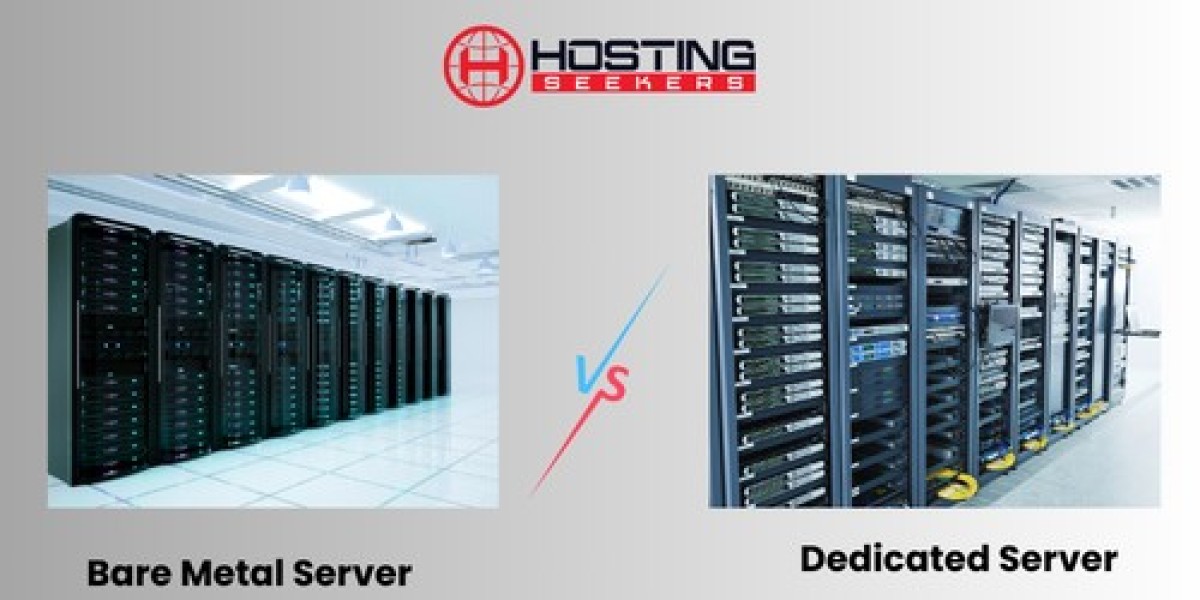In the realm of hosting solutions, both bare-metal servers and dedicated servers offer robust options for businesses seeking high-performance infrastructure. Understanding the differences between these two options is crucial for making an informed decision that aligns with your specific needs and requirements. Let's dive into the nuances of bare metal servers versus dedicated servers to help you determine the best fit for your business.
Defining Bare Metal and Dedicated Servers: Before we delve into the comparison, let's define these two types of servers.
Bare Metal Server: A bare metal server is a physical server dedicated to a single tenant, offering exclusive access to the server's resources without virtualization. It provides high performance, flexibility, and customization options.
Dedicated Server: A dedicated server is also a physical server dedicated to a single tenant, but it may utilize virtualization technologies to partition resources among multiple clients. It offers reliability, security, and scalability.
Performance and Resource Allocation: One of the primary differences between bare metal servers and dedicated servers lies in resource allocation.
Bare Metal Server: With a bare metal server, you have full access to the server's resources, including CPU, RAM, storage, and bandwidth. This ensures consistent performance and eliminates the risk of resource contention.
Dedicated Server: While dedicated servers also provide dedicated resources, they may involve resource sharing in virtualized environments. While this can lead to cost savings and flexibility, it may impact performance during peak usage periods.
Customization and Scalability:
Bare Metal Server: Bare metal servers offer unparalleled customization options, allowing you to tailor the hardware configuration to your specific requirements. This makes them ideal for high-performance workloads and resource-intensive applications. However, scaling a bare metal server may require additional hardware procurement and setup time.
Dedicated Server: While dedicated servers can be scaled vertically by upgrading resources, scaling horizontally to accommodate increased demand may require provisioning additional servers.
Cost Considerations:
Bare Metal Server: Bare metal servers typically involve higher upfront costs due to their exclusive access to hardware resources. However, they may offer better value in the long run for businesses with consistent and predictable workloads.
Dedicated Server: Dedicated servers may involve lower upfront costs, especially in virtualized environments where resources are shared among multiple clients. However, the total cost of ownership may increase over time as resource requirements grow.
Use Cases and Recommendations:
Bare Metal Server: Ideal for performance-sensitive workloads, such as database hosting, big data analytics, and high-traffic websites. Recommended for businesses with predictable resource requirements and stringent performance demands.
Dedicated Server: Suitable for a wide range of applications, including web hosting, email servers, and application development. Recommended for businesses seeking flexibility, scalability, and cost-effective solutions.
Conclusion: Both bare metal servers and dedicated servers offer compelling hosting solutions with distinct advantages and considerations. Understanding your business requirements, performance needs, customization preferences, and budget constraints is essential for choosing the right solution. Whether you opt for the raw power and performance of a bare metal server or the flexibility and scalability of a dedicated server, selecting the appropriate solution will lay the foundation for your business's success in the digital realm.







